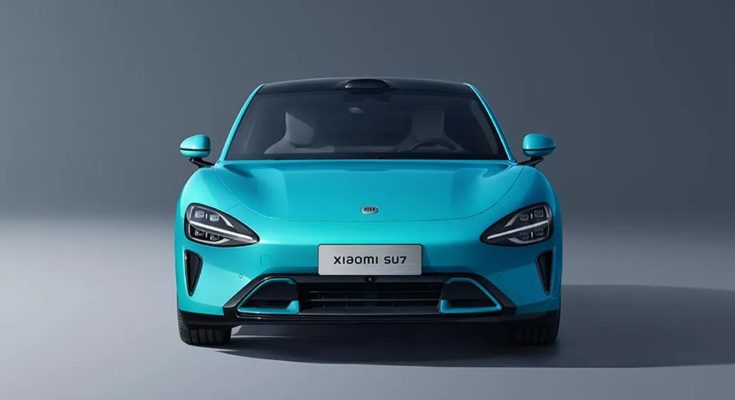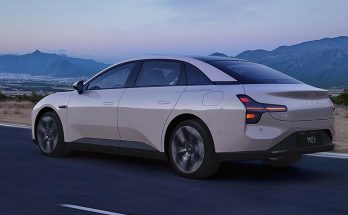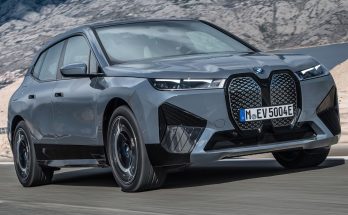Introduction to Xiaomi’s Automobile Venture
Xiaomi is no stranger to bold moves, and its latest venture into the automobile industry has certainly turned heads. With an established reputation in electronics, the tech giant decided to take a leap into electric vehicles (EVs). Many were eager to see what this would mean for both Xiaomi and the automotive world. However, recent news has revealed that Xiaomi turned down a staggering $10 billion offer for its budding automobile project. This decision raises eyebrows and sparks curiosity—what could possibly be behind such a monumental choice? Let’s dive deeper into Xiaomi’s journey on wheels and explore what lies ahead for this ambitious company.
The $10 Billion Offer
Recently, Xiaomi found itself at the center of attention when a staggering $10 billion offer came its way. This figure is not just significant; it’s a game-changer in the automobile industry.
The offer was made by an undisclosed investment firm eager to capitalize on Xiaomi’s innovative reputation. The prospect of backing such a tech giant seemed like an opportunity too good to pass up for many investors.
However, this wasn’t merely about money. It represented more than financial gain; it symbolized trust in Xiaomi’s vision for the future of transportation. By turning it down, Xiaomi signaled its commitment to maintaining control over its ambitious plans in the automotive sector.
In rejecting this lucrative proposal, Xiaomi reinforced its strategy and determination to carve out a unique path within an increasingly competitive market landscape.
Why Xiaomi Turned it Down?
Xiaomi’s decision to turn down the $10 billion offer for its automobile venture is rooted in a vision for sustained growth rather than immediate gain. The company recognizes the burgeoning potential of electric vehicles and wants to carve out its own niche.
Accepting a massive investment could have led to constraints on creativity and innovation. Xiaomi values autonomy, allowing it to explore unique designs and technologies without external pressure.
Moreover, retaining control means Xiaomi can align the automotive project with its broader ecosystem of smart devices. This synergy may create more robust user experiences that extend beyond just cars.
Xiaomi likely sees this as an opportunity to establish itself as a formidable player in the market rather than simply cashing in early. They are playing the long game, aiming for sustainable success over short-term profits.
Xiaomi’s Strategy in the Automobile Industry
Xiaomi has a bold vision for its automobile venture. The company aims to integrate cutting-edge technology into its vehicles, replicating the smart ecosystem that made its smartphones popular.
By leveraging its expertise in IoT and AI, Xiaomi plans to offer cars that are not just modes of transport but connected devices on wheels. This approach allows for seamless integration with user lifestyles.
Another key aspect of Xiaomi’s strategy is affordability. Unlike many competitors, Xiaomi intends to keep prices competitive while delivering high-quality features. This plan targets a broader audience looking for advanced yet budget-friendly options.
Moreover, partnerships play an essential role in their strategy. Collaborating with established players helps accelerate development and innovation within the automotive space. Such alliances can also enhance production capabilities and distribution channels.
Staying agile is crucial as well; Xiaomi is committed to rapidly adapting to market changes and consumer preferences in this ever-evolving industry landscape.
Competitors in the Market
The automobile industry is fierce, with several key players making their mark. Tesla has established itself as a leader in electric vehicles, pushing boundaries with technology and innovation. Its presence creates significant pressure on newcomers like Xiaomi.
Traditional automakers are also stepping up their game. Companies such as Ford and General Motors are investing heavily in EVs to keep pace with the changing landscape. Their extensive experience gives them an edge that could challenge Xiaomi’s entry into the market.
Chinese competitors shouldn’t be overlooked either. Brands like NIO and BYD have gained traction both domestically and internationally. They offer advanced features alongside competitive pricing, making it tough for new entrants to carve out a niche.
In this dynamic environment, staying ahead of competition requires not just great products but strategic partnerships and cutting-edge technology integration. This makes the road ahead even more challenging for Xiaomi.
Future Plans for Xiaomi’s Automobile Venture
Xiaomi has ambitious plans for its automobile venture that go beyond traditional car manufacturing. The company envisions integrating advanced technologies to create smart, connected vehicles.
One of the key focuses will be on electric vehicles (EVs). With the global push towards sustainability, Xiaomi aims to produce efficient and eco-friendly models that cater to environmentally conscious consumers.
Alongside this, Xiaomi is exploring partnerships with tech firms. Collaborations could enhance features like autonomous driving and AI-powered infotainment systems. Such innovations are expected to set their cars apart in a competitive market.
Additionally, there will be an emphasis on affordability without compromising quality. This strategy targets a broader audience, appealing to those who want cutting-edge technology at reasonable prices.
Through these initiatives, Xiaomi seeks not just market entry but also lasting impact in the automotive industry. They aim to redefine how we think about personal transportation in today’s digital age.
Conclusion: Will Xiaomi Succeed in the Automobile Industry?
Xiaomi has taken a bold step by declining a staggering $10 billion offer for its automobile venture. This decision reflects the company’s commitment to creating an innovative and sustainable brand in the automotive industry. By prioritizing long-term growth over immediate financial gain, Xiaomi is betting on its vision for smart mobility.
As competition intensifies with giants like Tesla and traditional automakers entering the electric vehicle space, Xiaomi’s strategy will be put to the test. The company aims to leverage its expertise in technology and consumer electronics to carve out a niche that sets it apart from competitors.
Investors and consumers alike are watching closely as Xiaomi unfolds its plans. With significant resources at their disposal and a robust R&D framework, there’s potential for them to make substantial strides in this new domain.
The question remains: Will Xiaomi manage to establish itself as a leader in the automobile industry? Only time will tell if their gamble pays off or if they face challenges along the way. What’s certain is that they’re not afraid of taking risks—a trait that could define their journey ahead.



